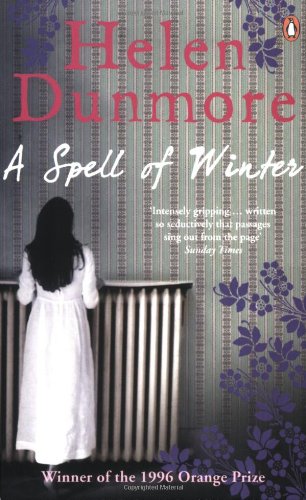 I really enjoyed What Lies Within by Tom Vowler and The Summer We All Ran Away by Cassandra Parkin, fellow Scott Prize winners. What Lies Within is a suspenseful, unsettling novel. The narrative alternates between Anna and a young teacher who has been sexually assaulted by one of her students. For me, a huge part of the pleasure of reading this book came from working out how the narratives were linked (nope, I won't be giving any spoilers). The Summer We All Ran Away takes place in an abandoned house in Cornwall. When nineteen year old Davey arrives at the house drunk and beaten he is taken in by Kate, Tom, Priss and Isaac whose stories unfold as the narrative progresses. It's a thoughtful, lost and found novel that moves seamlessly between times as it examines friendship and love over several decades.
I really enjoyed What Lies Within by Tom Vowler and The Summer We All Ran Away by Cassandra Parkin, fellow Scott Prize winners. What Lies Within is a suspenseful, unsettling novel. The narrative alternates between Anna and a young teacher who has been sexually assaulted by one of her students. For me, a huge part of the pleasure of reading this book came from working out how the narratives were linked (nope, I won't be giving any spoilers). The Summer We All Ran Away takes place in an abandoned house in Cornwall. When nineteen year old Davey arrives at the house drunk and beaten he is taken in by Kate, Tom, Priss and Isaac whose stories unfold as the narrative progresses. It's a thoughtful, lost and found novel that moves seamlessly between times as it examines friendship and love over several decades. Rachel Joyce does prickly Englishness so well in The Unlikely Pilgrimage of Harold Fry. Harold leaves home one morning to post a letter and ends up walking to the other end of the country. It's a novel that could easily get boring as the reader accompanies Harold on his long walk through the British countryside, but it doesn't disappoint. While Harold walks, he comes to terms with a series of losses in his life and there are lovely descriptive passages as he becomes aware of his surroundings. The Unlikely Pilgrimage of Harold Fry is a story that's packed with eminently likeable characters and yet it's not at all saccharine or sentimental.
Rachel Joyce does prickly Englishness so well in The Unlikely Pilgrimage of Harold Fry. Harold leaves home one morning to post a letter and ends up walking to the other end of the country. It's a novel that could easily get boring as the reader accompanies Harold on his long walk through the British countryside, but it doesn't disappoint. While Harold walks, he comes to terms with a series of losses in his life and there are lovely descriptive passages as he becomes aware of his surroundings. The Unlikely Pilgrimage of Harold Fry is a story that's packed with eminently likeable characters and yet it's not at all saccharine or sentimental.The Lie and The Last Boat Home are proof copies of books that haven't yet been published (I know, lucky me!). The Lie is a gorgeous novel set in the aftermath of the First World War. A young man returns home to Cornwall, suffering from what we would probably now call PTSD. Night terrors and panic attacks impair his judgement leading him to tell a lie that has disastrous consequences. The narrative moves between post-war Cornwall and the trenches. Dunmore's descriptions of trench warfare are horrifying and reminded me of Pat Barker's excellent war novels. Dea Brovig's The Last Boat Home is also a novel about a lie. Set in an icy landscape, it moves between 1974 and the present as Else's first love returns to town and she is forced to re-examine the past. Else's story unfurls delicately, gradually and skilfully, ensuring that the secret at the heart of the novel is revealed at precisely the right moment.
 A Spell of Winter is a haunting, dark novel about forbidden passions and thwarted love. Abandoned by their parents, Catherine and Rob are brought up by servants in their grandfather's house. Their mother's disappearance is mysterious and memories of their father are tinged by sadness. As they grow up their love becomes incestuous. It's another icy, wintry read and absolutely my kind of book - sometimes the writing was so beautiful and vivid I had to stop to reread sentences (I LOVE it when this happens).
A Spell of Winter is a haunting, dark novel about forbidden passions and thwarted love. Abandoned by their parents, Catherine and Rob are brought up by servants in their grandfather's house. Their mother's disappearance is mysterious and memories of their father are tinged by sadness. As they grow up their love becomes incestuous. It's another icy, wintry read and absolutely my kind of book - sometimes the writing was so beautiful and vivid I had to stop to reread sentences (I LOVE it when this happens).I wasn't surprised when I discovered that A Spell of Winter won the 1996 Orange Prize.
This final pile of books is research for novel no.2. I'm trying to adopt the novel-planning method that Ed Docx recommended at Arvon, but I'm finding it hard not to plunge in at the deep end. So far, I have managed to resist. And my long-suffering husband has managed not to point out the irony of ordering even more books in order to learn about bibliomania. Result!




No comments:
Post a Comment